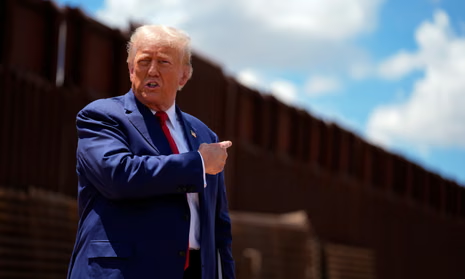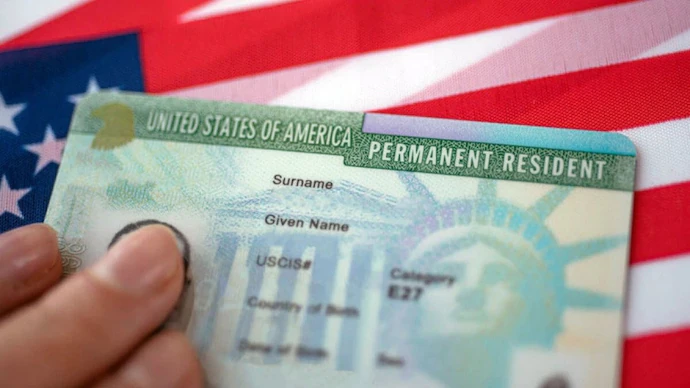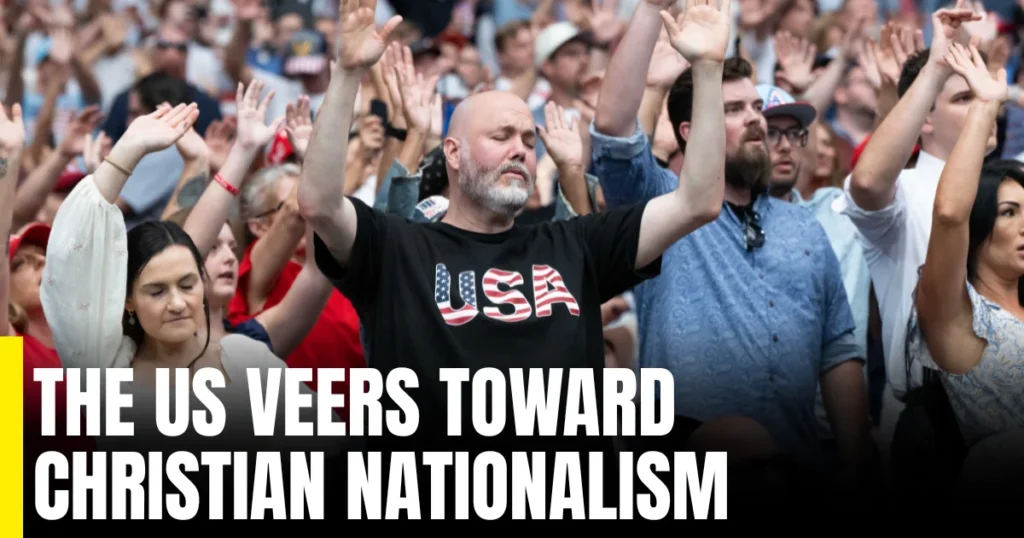Trump’s administration is tightening legal immigration rules, visas, and citizenship tests. Learn how new policies impact students, workers & families.
Table of Contents
Inside the Trump Administration’s Sweeping Crackdown on Legal Immigration
The Trump administration has launched one of the most sweeping overhauls of the U.S. immigration system in modern history — not just targeting illegal immigration but tightening legal pathways as well. From new visa restrictions and higher fees to tougher citizenship tests, the changes are reshaping how millions of people live, work, and study in the United States.
Trump Administration’s Immigration Strategy

In just eight months, the administration rolled out multiple measures affecting international students, foreign workers, refugees, and even naturalized citizens. These include:
- H-1B Visa Fee Hike – A $100,000 application fee now applies to employers, sparking outrage in the tech and business community.
- Refugee Admissions Halted – The program has largely stopped, with limited exceptions.
- Stricter Citizenship Tests – Applicants face tougher requirements, including reinstated “neighborhood checks.”
- Birthright Citizenship Challenges – Officials are attempting to end automatic citizenship for U.S.-born children of immigrants.
White House officials argue these changes are needed to prevent fraud, protect American jobs, and strengthen national security.
Foreign Workers and H-1B Visa Rules
The H-1B program, long vital for U.S. tech companies, faces drastic changes. With the new six-figure fee, employers fear losing access to skilled international workers.
Adding to the confusion, Trump simultaneously introduced a “gold card visa” option:
- $1 million for individuals to fast-track their visa.
- $2 million for companies to sponsor foreign workers.
While meant to attract the wealthy and highly skilled, experts warn the system now favors the rich while blocking traditional legal pathways.
Citizenship and Legal Residents Under Scrutiny

The crackdown extends to immigrants already in the U.S. legally. USCIS has:
- Expanded social media vetting for “anti-American activity.”
- Resumed neighborhood checks for citizenship applicants.
- Revoked Biden-era protections limiting denaturalization probes.
These policies create uncertainty even for those who followed all legal rules, with immigration attorneys warning that “doing it the right way” no longer guarantees safety.
Student Visas and International Education
International students face new restrictions as the State Department revoked over 6,000 visas in 2025— nearly four times last year’s number. Many were accused of supporting terrorism or antisemitism, often based on protest activity.
Key measures include:
- Revoking visas for students linked to anti-Israel or anti-American activism.
- Reducing F-1 and J-1 visa issuances.
- Proposing limits on how long foreign students can stay in the U.S.
The result: U.S. universities are seeing sharp declines in enrollment, which could hurt both the economy and America’s global competitiveness.
Political and Social Impact
Supporters of the crackdown, led by Trump adviser Stephen Miller, argue that stricter immigration ensures fairness and job protection for U.S. citizens. Critics, however, see it as weaponizing the immigration system against those who played by the rules.
Polls suggest most Americans still see legal immigration as a benefit. Yet, the administration’s actions — from raids at U.S. factories to revoking student visas — reveal a determined push to tighten every aspect of the system.
FAQs on Trump’s Legal Immigration Crackdown
Q1: What is the new H-1B visa fee under Trump’s administration?
A: Employers must now pay $100,000 per application, a move criticized as a barrier for U.S. companies seeking skilled workers.
Q2: Are international students being targeted?
A: Yes. Over 6,000 student visas were revoked in 2025, with officials citing terrorism-related activities and anti-American protests.
Q3: What is the “gold card visa”?
A: A new pathway allowing wealthy foreigners to pay $1M individually or $2M via companies to fast-track their U.S. visa.
Q4: How has the citizenship process changed?
A: Applicants now face harder tests, neighborhood checks, and stricter vetting of social media and personal history.
Q5: Why is the administration tightening legal immigration?
A: Officials claim the goal is to stop fraud, protect jobs, and restore “integrity,” though critics argue it unfairly penalizes law-abiding immigrants.
Conclusion
The Trump administration’s crackdown on legal immigration marks a fundamental shift in U.S. policy. By raising fees, restricting visas, and tightening citizenship rules, the government is reshaping who gets to live, work, and study in America.
While supporters call it a step toward fairness and security, critics warn it undermines the very foundation of legal immigration — leaving families, businesses, and universities uncertain about the future.

